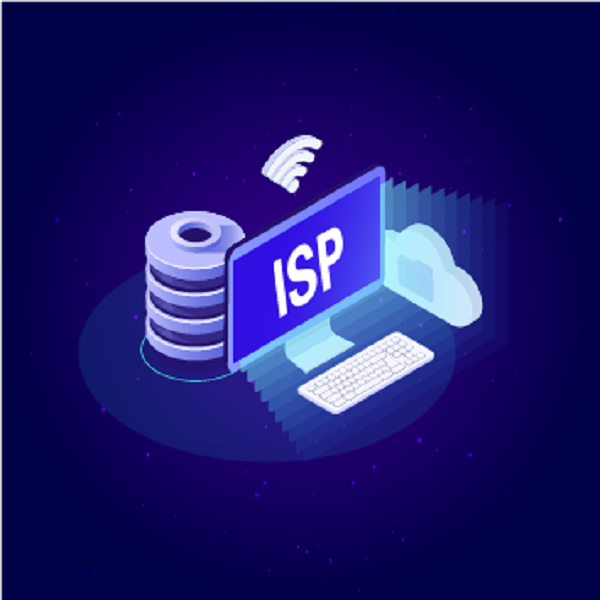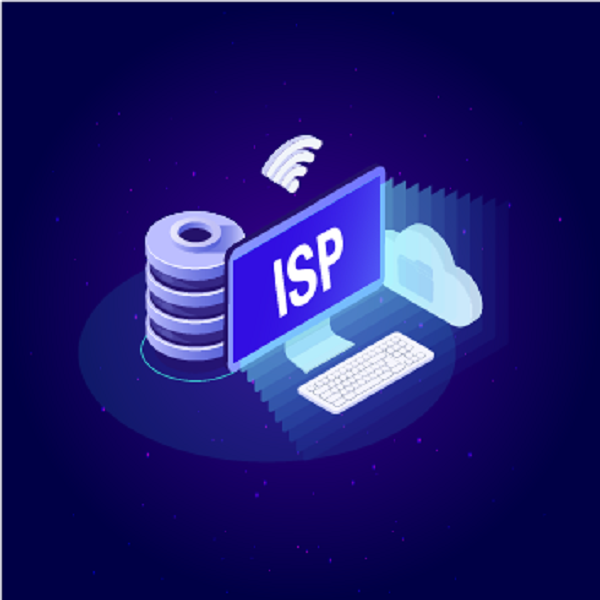Residential Proxies
Allowlisted 200M+ IPs from real ISP. Managed/obtained proxies via dashboard.

Proxies Services
Residential Proxies
Allowlisted 200M+ IPs from real ISP. Managed/obtained proxies via dashboard.
Residential (Socks5) Proxies
Over 200 million real IPs in 190+ locations,
Unlimited Residential Proxies
Unlimited use of IP and Traffic, AI Intelligent Rotating Residential Proxies
Static Residential proxies
Long-lasting dedicated proxy, non-rotating residential proxy
Dedicated Datacenter Proxies
Use stable, fast, and furious 700K+ datacenter IPs worldwide.
Mobile Proxies
Dive into a 10M+ ethically-sourced mobile lP pool with 160+ locations and 700+ ASNs.
Scrapers
Collection of public structured data from all websites
Proxies
Residential Proxies
Allowlisted 200M+ IPs from real ISP. Managed/obtained proxies via dashboard.
Starts from
$0.77/ GB
Residential (Socks5) Proxies
Over 200 million real IPs in 190+ locations,
Starts from
$0.045/ IP
Unlimited Residential Proxies
Unlimited use of IP and Traffic, AI Intelligent Rotating Residential Proxies
Starts from
$1816/ MONTH
Rotating ISP Proxies
ABCProxy's Rotating ISP Proxies guarantee long session time.
Starts from
$0.4/ GB
Static Residential proxies
Long-lasting dedicated proxy, non-rotating residential proxy
Starts from
$4.5/MONTH
Dedicated Datacenter Proxies
Use stable, fast, and furious 700K+ datacenter IPs worldwide.
Starts from
$4.5/MONTH
Mobile Proxies
Allowlisted 200M+ IPs from real ISP. Managed/obtained proxies via dashboard.
Starts from
$1.2/ GB
Scrapers
Web Unblocker
Simulate real user behavior to over-come anti-bot detection
Starts from
$1.2/GB
Serp API
Get real-time search engine data With SERP API
Starts from
$0.3/1K results
Video Downloader
Fully automated download of video and audio data.
Starts from
$0.07/GB
Scraping Browser
Scale scraping browsers with built-inunblocking and hosting
Starts from
$2.5/GB
Documentation
All features, parameters, and integration details, backed by code samples in every coding language.
TOOLS
Resources
Addons
ABCProxy Extension for Chrome
Free Chrome proxy manager extension that works with any proxy provider.
ABCProxy Extension for Firefox
Free Firefox proxy manager extension that works with any proxy provider.
Proxy Manager
Manage all proxies using APM interface
Proxy Checker
Free online proxy checker analyzing health, type, and country.
Proxies
AI Developmen
Acquire large-scale multimodal web data for machine learning
Sales & E-commerce
Collect pricing data on every product acrossthe web to get and maintain a competitive advantage
Threat Intelligence
Get real-time data and access multiple geo-locations around the world.
Copyright Infringement Monitoring
Find and gather all the evidence to stop copyright infringements.
Social Media for Marketing
Dominate your industry space on social media with smarter campaigns, anticipate the next big trends
Travel Fare Aggregation
Get real-time data and access multiple geo-locations around the world.
By Use Case
English
繁體中文
Русский
Indonesia
Português
Español
بالعربية


This article analyzes the core value and technical implementation path of Batchdata, explores how to improve the efficiency and security of batch data processing through proxy IP services, and provides practical guidance for enterprise-level data management.
Definition and core value of Batchdata
Batchdata refers to large-scale data sets that are centrally processed through automated tools or scripts, and is usually used for periodic tasks (such as log analysis, report generation) or cross-system data synchronization (such as user information migration). Compared with real-time streaming data processing, Batchdata pays more attention to task integrity, error tolerance, and resource utilization, and is suitable for scenarios that have relatively loose timeliness requirements but require high reliability.
The proxy IP services (such as data center proxy and static ISP proxy) provided by abcproxy can provide a stable network channel for cross-regional data collection, API batch calling and other links in Batchdata processing, which is especially important in scenarios where it is necessary to avoid IP blocking or simulate user behavior in multiple regions.
Batchdata's core application scenarios and technical implementation
1. Enterprise-level data integration and cleaning
In scenarios such as customer data management and supply chain analysis, enterprises need to extract data from multiple heterogeneous systems (such as CRM and ERP) and store them in a unified data warehouse after deduplication and format conversion. Batchdata processing frameworks (such as Apache Spark) improve throughput through distributed computing, while the intervention of proxy IPs can ensure stable access to external data sources (such as public APIs or third-party platforms). For example, using abcproxy's static ISP proxy fixed exit IP can avoid triggering access restrictions on the target server due to frequent requests.
2. Automated report generation and distribution
Tasks such as sales data aggregation and advertising effectiveness statistics on e-commerce platforms usually need to be performed daily or weekly. Trigger the batch data processing flow through scheduled task scheduling tools (such as Airflow), and automatically push the results through email or message queues. In this process, proxy IP can be used to simulate user access behaviors in different regions and verify the accuracy of regional data in the report.
3. Cross-platform data aggregation and monitoring
The public opinion monitoring system needs to capture data in batches from social media, news websites and other channels, and generate sentiment analysis reports after natural language processing (NLP). In such scenarios, batch data processing needs to solve the following challenges:
Anti-crawling: Rotate the request source IP through a proxy IP pool (such as abcproxy's residential proxy) to reduce the risk of being blocked.
Data consistency: Set up retry mechanisms and data verification rules to ensure that the overall task can still be completed when some nodes fail.
Technical strategies to improve batch data processing efficiency
Data Sharding and Parallel Processing
Split large-scale data sets into independent subtasks (such as by time range or user ID hash) and process them in parallel through multithreading or distributed computing frameworks. For example, use Python's concurrent.futures module to achieve local parallelism, or expand computing resources through Kubernetes clusters. Proxy IP can assign different IPs to each subtask in this process to further disperse the request pressure.
Error handling and state management
Breakpoint resume: Record the checkpoint of processed data, and resume from the nearest node after task interruption.
Exception classification: Set retry strategies based on error types (such as network timeouts and data format errors) to avoid infinite loops.
Log aggregation: Centrally store task logs to quickly locate bottlenecks (such as specific IPs triggering anti-crawling rules).
Resource optimization and cost control
Separation of hot and cold data: Store frequently accessed data in memory or SSD, and archive historical data to low-cost storage.
Proxy IP selection: Select the proxy type based on the characteristics of the task. For example, abcproxy's unlimited residential proxy is suitable for long-term high-concurrency collection, while the data center proxy is more suitable for internal system interactions that are sensitive to latency.
The key role of proxy IP in Batchdata
1. Break through the access frequency limit
The target server often limits the request rate based on the IP address (e.g. 100 times per minute). By rotating the egress IP in the proxy IP pool, the total request rate can be increased to the number of IPs × the upper limit of the single IP rate. For example, the theoretical upper limit of 10 proxy IPs can reach 1,000 times per minute.
2. Regionalized data collection
Some data content may differ due to regional policies or business logic (such as product prices, news recommendations). By configuring the geographic location of the proxy IP (such as the 195 countries/regions supported by abcproxy), you can obtain multi-regional data in batches to support global business decisions.
3. Enhance task anonymity
Residential proxy IP simulates the real user network environment, making it more difficult to identify data collection behavior as an automated script. Combining request header randomization (such as User-proxy rotation) with behavior simulation (such as mouse movement trajectory) can further enhance the concealment of the task.
Summary
Batch data processing is an infrastructure-level capability in the digital transformation of enterprises. Its core goal is to release the value of data through automation and scale. In actual implementation, it is necessary to balance performance, cost and stability: from technology selection (such as computing framework, storage solution) to network layer optimization (such as proxy IP integration), each link needs to be designed specifically.
As a professional proxy IP service provider, abcproxy provides a variety of high-quality proxy IP products, including residential proxy, data center proxy, static ISP proxy, Socks5 proxy, unlimited residential proxy, suitable for a variety of application scenarios. If you are looking for a reliable proxy IP service, welcome to visit the abcproxy official website for more details.
Featured Posts
Popular Products
Residential Proxies
Allowlisted 200M+ IPs from real ISP. Managed/obtained proxies via dashboard.
Residential (Socks5) Proxies
Over 200 million real IPs in 190+ locations,
Unlimited Residential Proxies
Use stable, fast, and furious 700K+ datacenter IPs worldwide.
Rotating ISP Proxies
ABCProxy's Rotating ISP Proxies guarantee long session time.
Residential (Socks5) Proxies
Long-lasting dedicated proxy, non-rotating residential proxy
Dedicated Datacenter Proxies
Use stable, fast, and furious 700K+ datacenter IPs worldwide.
Web Unblocker
View content as a real user with the help of ABC proxy's dynamic fingerprinting technology.
Related articles

How to get data using BeautifulSoup
This article discusses how to use BeautifulSoup to obtain data, and introduces the important role of proxy IP in web page collection. It recommends the use of abcproxy's high-quality proxy IP products.

How to use Batchdata to optimize large-scale data processing
This article analyzes the core value and technical implementation path of Batchdata, explores how to improve the efficiency and security of batch data processing through proxy IP services, and provides practical guidance for enterprise-level data management.